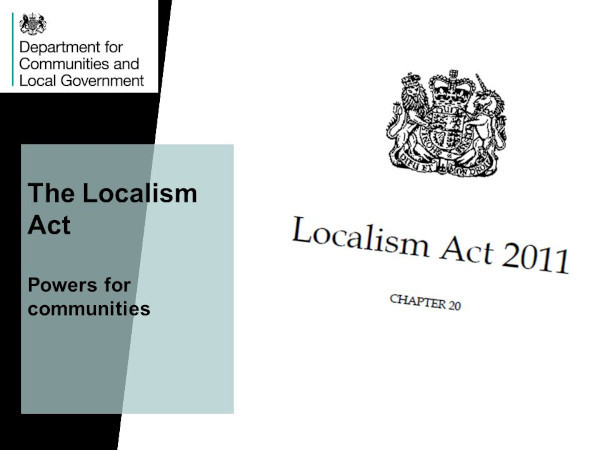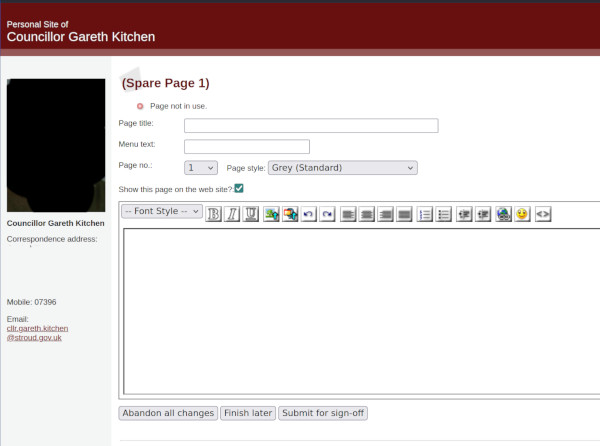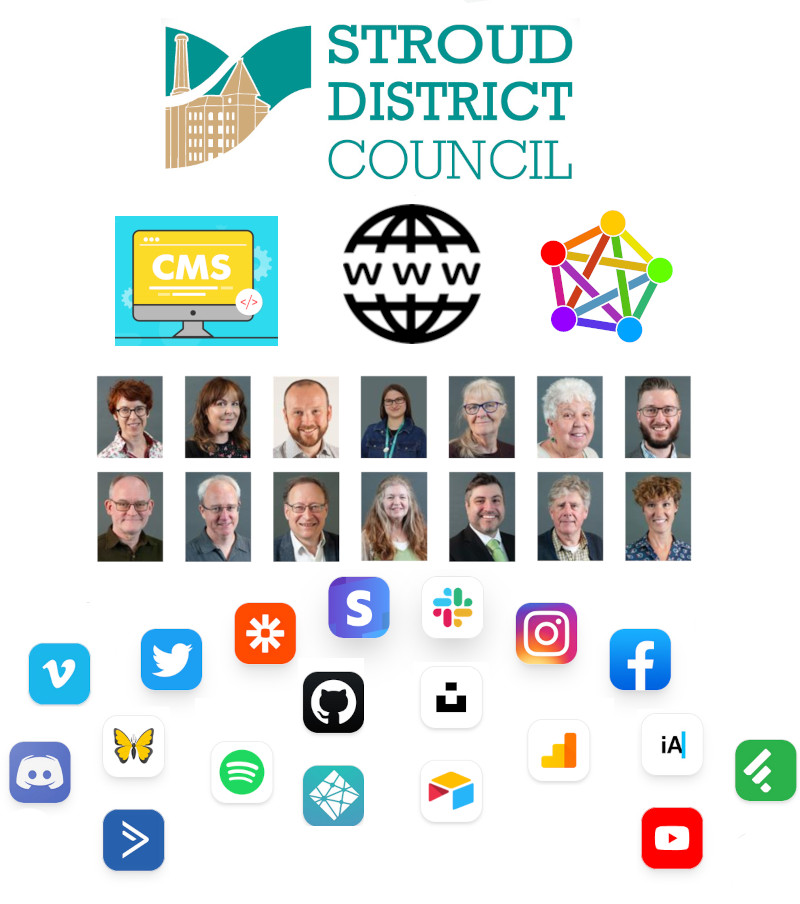SDC Consultation and Engagement Survey
May 28, 2025•2,038 words

The Council is running a short survey on how it consults and engages with its communities and stakeholders to ensure that they are listened to and can influence decisions that are made.
I encourage you all to respond to this survey. If you want change, it starts here. ;)
However, personally, this simple consultation about engagement has triggered all sorts of thoughts.
Earlier this week I had yet another stay at GRH and had plenty time to dump of all of these thoughts onto my blog. I'll be submitting this document as my own response to this survey drawing on the various community 'engagement' issues that I've fought on in recent years.
Twelve months ago I was elected as a district councillor. As I also run a small high street shop, I am constantly engaged with my local community. Genuine engagement! I feel that my views here broadly reflect what people know me for (as per my election bio) and to some extent reflect the more general views within my community.
I've long thought it obvious that there is a need for a fundamental re-think about how councils engage and consult with their communities.
To many, the current forms of consultation (exemplified by this survey) are often seen to be tick box exercises. Many 'surveys' lack the simple option to submit thoughts without predefined constraint. Often such engagement is seen as cover to justify some predetermined outcome. Also, why so much focus on quantitative research when, in many circumstances, qualitative research would offer far more insight?
Historically, big decisions have been imposed with little consideration of communities. The £4m. tax payer bailout of the Merrywalks shopping mall being just one example. Lack of engagement, let alone impact assessments, left communities, other than Stroud, feeling ignored and powerless.

The aim of the Localism Act 2011 was intended to shift power from government to the local people in order for them to directly influence and properly take control what happens in their communities.
Yet fourteen years later, an edict from the current Westminster Government has invoked Local Government Reorganisation. This flies in the face of the Localism agenda. Even a Citizens' Assembly as a means of consultation proved pointless, as the outcome of the LGR is predetermined.
The cynical duplicity of the establishment seems exposed, trust in politics further eroded.

With communities already feeling powerless there has been explosive growth of social media over the last decade or so. These huge technology companies are almost entirely US owned and shamelessly off-shore profits avoiding UK tax, thereby free loading off our public services. Let's not even talk about Amazon and its decimation of high streets up and down the land.
These social media platforms amplify division, particularly pertinent to planning applications, and instil fear in small parish councils. Councils often prevent their councillors from speaking on these platforms, in order to protect their council's image. This results in communities suffering a dearth of information on important topics that directly affect their lives.
Residents certainly feel that parish councils now appear to operate much more secretively. Official minutes, if published at all, appear many weeks after the event and are often subject to unwarranted reporting restrictions.
US Big Tech has also decimated many, of the once influential, local newspapers. Budgets depleted, journalists are no longer paid to attend council meetings. Their absence results in councillors behaving in ways that would not have been tolerated only a decade ago.
I suggest that these are some of the many reasons why entire communities are becoming disengaged from local politics and their residents becoming even harder to reach.

Simultaneously, driven by the demands of social media, news output has become reduced to binary snippets of information, hopelessly devoid of context. Content, often dressed as news but created by paid influencers, is injected into the home feeds of 79% of the UK population who use social media (source: statista.com). Users feeds are manipulated by the algorithms of Big US Tech and influencers to maximise engagement, often inline with the beliefs of their techbro, billionaire, owners.
To maximise engagement (on the social media platform) residents' online behaviour is constantly being surveiled. Personal information is shared, in real time, with influencers to assist them in micro targeting content. This information may include whether a person gambles, their finances, debt, area of work etc. All this private information is gleaned from platforms such as M365, Linked-In and web sites visited that employ Google, Meta, TicTok, X and Apple advertising technologies. It should not be possible if they complied with GDPR, but they don't.
Even SDC use a US company called Granicus to process the e-mail delivery of news. The US has notoriously weak data protection. Whilst we can be reasonably certain that Granicus won't share personal information, they do capture and, I assume, sell associated non-personal information into the shady data broker marketplace. IP addresses, location, browser, fonts & plug-in types, all of which can be used combined with other data sources to uniquely identify and fingerprint users so their browsing habits can be analysed.
It is clear that at least 79% of the residents in our communities are constantly exposed to this profiling, skewing and influencing their perception; which ultimately undermines democracy and even national security.
Identifying the problem
To some extent these problems, in isolation, have already been identified. Sadly, proposed solutions, by councils, seem to revolve around buying into these toxic business practices. Becoming more influencer-like, chasing 'likes' and 'followers' on these Big US Tech social media platforms.

The BBC, in recent years, has funded more local local democracy reporters, but these reporters are also shackled by BBC dogma. Recently, they announced that more reporters will be funded. But befuddled thinking and poor leadership, wants them to produce YouTube and TikTok output, to become a reputable source of 'noise'!
Whilst the BBC wants to be seen as a catalyst for building trust, the relationships they are building appear to be commercial; thereby cementing in inherent surveillance advertising and all it's targeted toxicity, enriching US billionaires.

It's interesting to note that moderngov, which SDC uses for publishing minutes etc., has a section for councillors wanting to produce their own blog. However, each page has to be signed off by SDC. It is a hopelessly outdated design and not fit for purpose.
What is engagement?
Surely, true engagement isn't about tick boxes, surveys, sanitised consultations and chasing 'likes' or 'followers'.
True engagement with communities is about listening, facilitating the free flow of information, frank discussion, plain speaking free from corporate bullshit and an honest commitment to build on the relationship.
Engagement cannot be forced upon a community it can only be nurtured from the ground up by local councillors who, are after all elected by their peers, to represent the communities best interests.

Traditionally, local councillors have only had limited interaction with and little accountability to the general public (apart from the ballot box). Often their engagement was with a select, like-minded, demographic. Maybe this is why we are seeing huge upsets, even in rural constituencies, where councillors who have held seats for decades being ousted by candidates from 'populist' parties of both right and left.
Councillors have to encourage communities to get involved in the facilities and services that directly impact them. I see it as the job of local councils, such as SDC, to support these elected councillors to listen, engage, disseminate, collaborate in order to bring information back to the council for discussion and decision. This has to be the 'business as usual' position. Constant engagement with communities, so much engagement that it just becomes part of the communities fabric.
But, this can only work if all tiers of Govt. abide with the core tenet of this relationship and never ride roughshod over community needs.
Redefine Scope
Maybe there are two problems that need addressing here? Disseminating council comms and disseminating councillor comms. Different requirements, different solutions? I'm not so sure on this, I think this is a single problem. Councils' comms need to be devolved downwards, to individual councillors.
Measuring engagement
It also occurs to me that I'm uncertain how community engagement is actually measured. Achieving a response of just a few hundred to quantitative 'consultations' seems to be the norm and viewed as positively. Surly, this embeds risk that the Council are engaging with a vocal minority and not the majority; resulting, not least, in discrimination. Worse, branding those who don't engage as 'hard to reach.'
Protecting Residents

With all this talk of social media, we must not forget mental health. I strongly believe that councils have a moral duty to protect their residents from the harms caused by social media platforms. This directly relates to the surveillance and tracking technologies deployed by US Big Tech especially. We must ensure that we do not encourage residents to register on these propriety platforms in order to 'engage'. Personal information that they are required to provide during registration often dictates the content they see and divisive content is often not in their best interests.
Solutions
I do not advocate the abandonment of US Big Tech, although i would love to see this happen. We should certainly be avoiding further investment in it though.
What I do advocate is the provision of more open and authoritative sources of content as rich alternatives to existing social media.
Offering residents a greater choice of information would better target the 21% who do not, for whatever reason, engage with traditional social media. This would give the council greater reach, potentially re-connecting with these hard to reach demographics.
Direction of travel

My current thinking is that the council and their respective political parties should encourage councillors to step into the gap vacated by the local press as they already attend many parish meetings as observers. Encourage the publication of their observations with a view to inform their local community, stimulate engagement and encourage participation.
Ideally, facilitate regular drop-in sessions where residents can talk through community issues face to face.
Also, new social media platforms should be developed and hosted free of US Big Tech. Councils should provide this UK infrastructure, to support councillors in disseminating their work, the council could also leverage this as a publisher of content.
I've actually been talking with the BCC about their early forays in this direction.
Councillors need have complete freedom of expression, there must be no moderation of content.
Clearly, where there's alignment, they would boost SDC content to their own subscribers. Likes and such would flow back to SDC as the source. Importantly, councillors would be free to draw on content managed by the council to informing their followers via which ever other services they choose. In this way the reach of the council increases as the number of councillors embrace the new platform.
OK, I'm impatient
I've been testing out what I am preaching here. I publish a blog (semi-official) for most of the non-SDC meetings that I attend. The blog has an RSS feed and many residents also subscribe to it via e-mail. I've no idea who actually subscribes as registration is anonymous!
In the year or so that it has been running feedback has been overwhelmingly positive:-
Thank you for the blog, I always look forward to it. There is one thing that's really concerning me.......
Thanks Gareth you’re a breath of fresh air in your comms, makes local govt seem far more lively and interesting!
The blog is also supported by my fediverse presence:-
Again it has an RSS feed. No registration is required to view the content although a fediverse account is required to engage. No algorithms, no AI and no surveillance advertising or tracking either. All posts have the means to be shared to whatever other platform the reader prefers. Images are pulled through using Opengraph etc. so links work in a media rich way with all the other proprietary platforms.
I've found this a great way of backing up the casework that I pick up in the shop.